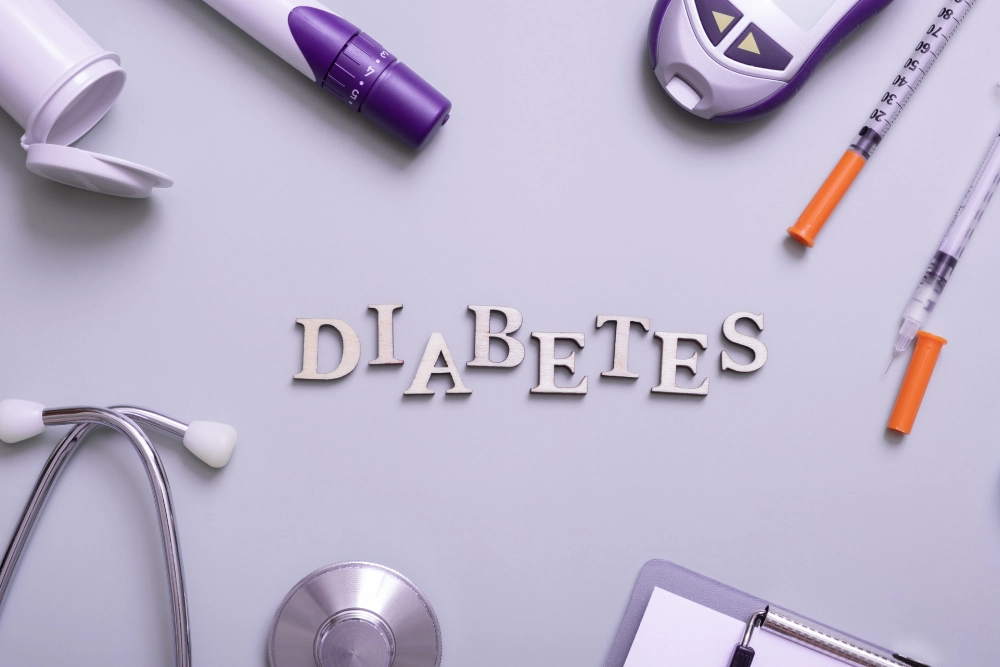Types of Diabetes

Types of Diabetes
Diabetes is a complex condition that can take many different forms. While type 1 and type 2 diabetes are the most common, there are other types of diabetes that also affect people in Kenya. Each type of diabetes requires different care and management, and it’s important to understand the distinctions so that the right treatment can be provided.
Type 1 Diabetes
Type 1 Diabetes occurs when your body’s immune system attacks the insulin-producing cells in the pancreas, meaning you can’t produce insulin. Insulin is crucial because it allows the glucose (sugar) from food to enter your cells, where it’s used for energy. Without insulin, blood sugar levels become dangerously high.
Type 1 diabetes often develops in childhood or early adulthood, but it can occur at any age. Although there is no cure, it is managed through insulin therapy, regular blood sugar monitoring, and lifestyle management.
Type 2 Diabetes
Type 2 diabetes is the most common type of diabetes in Kenya. It occurs when the body either doesn’t produce enough insulin or the insulin produced doesn’t work properly (insulin resistance). This leads to elevated blood sugar levels, which can cause complications if left untreated.
Type 2 diabetes is often related to lifestyle factors such as being overweight, eating an unhealthy diet, and not getting enough exercise. Many people with type 2 diabetes may also have a family history of the condition.
Managing type 2 diabetes involves making healthy lifestyle changes, such as eating a balanced diet, staying physically active, and sometimes taking medications, including insulin. Early diagnosis and regular check-ups are essential to avoid complications.
Gestational Diabetes
Gestational diabetes occurs during pregnancy in women who haven’t previously had diabetes. It happens when your body can’t produce enough insulin to meet the extra needs during pregnancy. While it often goes away after giving birth, gestational diabetes increases the risk of developing type 2 diabetes later in life.
Gestational diabetes is typically diagnosed between 24 and 28 weeks of pregnancy, and it requires close monitoring of blood sugar levels through diet, physical activity, and sometimes medication.
Other Types of Diabetes
While less common, there are other types of diabetes that people in Kenya may experience, including:
- Maturity Onset Diabetes of the Young (MODY): A rare form of diabetes that runs in families and usually develops before the age of 25.
- Neonatal Diabetes: Diagnosed in infants under six months of age, this type of diabetes is caused by a genetic mutation and is different from type 1 diabetes.
- Wolfram Syndrome: A rare genetic disorder that affects multiple organs and includes diabetes as one of its symptoms.
- Latent Autoimmune Diabetes in Adults (LADA): Sometimes called type 1.5 diabetes, LADA shares characteristics of both type 1 and type 2 diabetes and is often misdiagnosed.
- Steroid-Induced Diabetes: This type of diabetes occurs when taking steroid medications increases blood sugar levels, leading to the development of diabetes.
- Cystic Fibrosis-Related Diabetes: The most common type of diabetes in people with cystic fibrosis, this condition shares features of both type 1 and type 2 diabetes.
Managing Diabetes
Managing diabetes—whether it’s type 1, type 2, or any other type—requires regular blood sugar monitoring, healthy eating, staying active, and following your healthcare provider’s guidance. In Kenya, accessing healthcare services for diabetes management is essential to living a healthy and active life with the condition.
If you're unsure about your risk of diabetes or want to learn more about the condition, consult your healthcare provider and get tested. Early diagnosis and treatment are key to preventing complications.